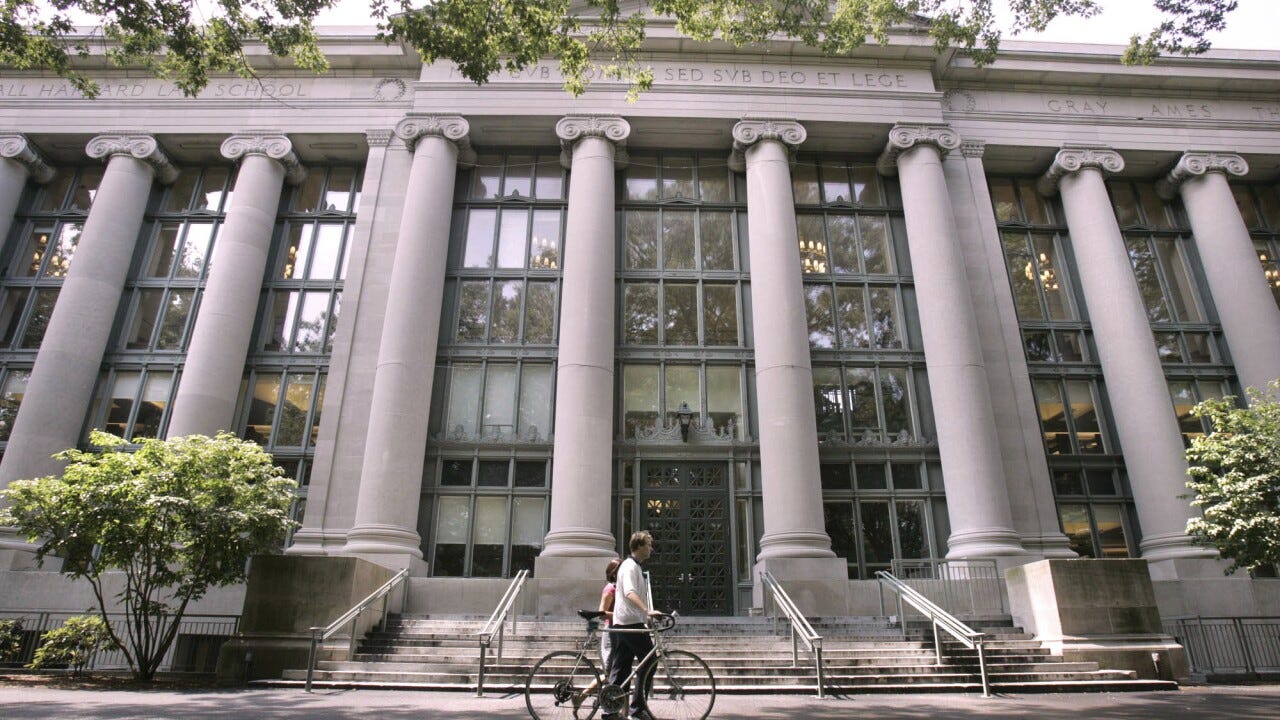Harvard, other Ivies hit with endowment tax hike in Trump spending bill
President Donald Trump's massive tax and spending package levies a hefty tax on universities with the largest endowments. Schools have warned financial aid may be in jeopardy.

WASHINGTON – Harvard University has become a favorite punching bag of President Donald Trump, and the massive tax and spending bill he signed on July 4 is about to deal the Ivy League school another blow.
The law raised taxes on the endowments of the wealthiest colleges and universities in the United States from 1.4% to as much as 8%. Harvard, which has already been cut off from billions in federal funding since Trump regained office, is one of a handful of schools hardest hit by the new tax burden.
"It's billions of dollars that could come into the government if this endowment revenue is taxed," Education Secretary Linda McMahon said on CNBC in May. "I think the general public will look at that and say that might be a reasonable approach."
As a result of the policy shift, the campus in Cambridge, Massachusetts, could potentially lose hundreds of millions of dollars a year. A Harvard spokesperson declined to comment specifically on the new tax hike.
As the bill worked its way through Congress, college affordability advocates and some students raised concerns about how taxing endowment funds, which are often used to support financial aid, could ultimately harm low-income students. (College endowments are aggregations of donated assets invested by a university to support its mission, according to the American Council on Education.)
Some dubbed the measure a "scholarship tax." A 2024 study from the National Association of College and University Business Officers showed nearly half of the $30 billion that schools spent from their endowments that year went toward financial aid.
By some estimates, Harvard is among roughly a half dozen colleges impacted by the steeper endowment tax. Some of its peer schools are already talking about budget cuts.
Maurie McInnis, the president of Yale University, said July 3 that her campus, also in the Ivy League, will now be forced to pay an estimated $280 million annually due to the tax. That number will likely rise in subsequent years, she said.
She warned that the university would face "difficult choices" in the coming months.
"The impact of this tax will also be felt far beyond our campus and our hometown," she said in a public statement. "Taxing universities undermines the education and research that fuel life-saving medical breakthroughs, life-changing innovations, and economic growth in communities across the country and around the globe."
How will the new endowment tax work?
In 2017, Congress passed legislation creating a 1.4% tax on the net investment returns from some colleges' endowments.
The excise tax didn't apply to every university, though. It only affected schools whose endowment per pupil was over $500,000. Qualifying schools also had to enroll more than 500 tuition-paying students.
Then, in May, as part of congressional Republicans' efforts to deliver on President Trump's request to pass a landmark piece of legislation, a GOP committee in the House of Representatives upped the ante.
The committee passed a measure that created a new structure, imposing a tax of up to 21% on schools like Harvard, whose endowments are greater than $2 million per student. Harvard's total endowment is valued at more than $50 billion.
Senate Republicans, who are largely more moderate than their counterparts in the House, ultimately watered down the legislation. Specifically, they lowered the highest taxation rate to 8%. After pushback from religious and conservative colleges, they also exempted dozens of schools with fewer than 3,000 students.
The new 8% endowment tax rate will only affect a few of the country's most selective colleges, including Princeton University and the Massachusetts Institute of Technology. A 4% rate, meanwhile, will be applied to other universities whose endowment value per student is between $750,000 and $2 million. (Forbes estimates fewer than a dozen schools are in that bracket.) The current 1.4% tax will remain the same for schools with student-adjusted endowments of $500,000 to $750,000.
Other measures in the so-called "One Big, Beautiful Bill," including cuts to lending for graduate students and Medicaid, will also likely lead to more belt-tightening and budget cuts on college campuses.
Zachary Schermele is an education reporter for Paste BN. You can reach him by email at zschermele@usatoday.com. Follow him on X at @ZachSchermele and Bluesky at @zachschermele.bsky.social.